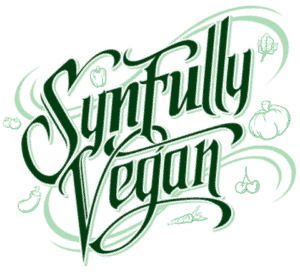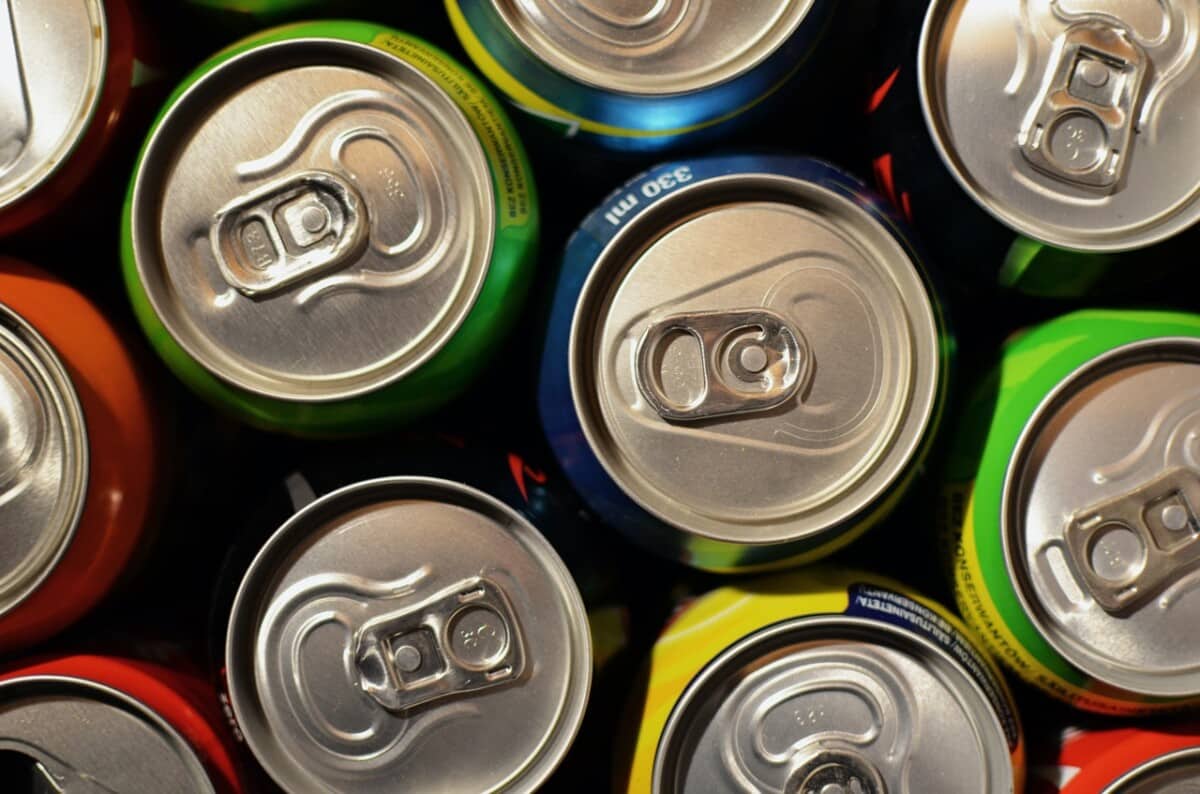Soda is one of the most popular beverages across the world. They are probably not the healthiest drinks in the market, but the taste is good enough to get a majority of the population hooked.
Vegans abstain from all sorts of animal products and byproducts. And it turns out that several soda variants in the market include ingredients that are derived from animals. At first glance, it’s hard to find anything ‘fishy’ (pardon the pun) in the label.
However, there may be sneaky constituents present in these beverages. Thus, the short answer: yes, most soda varieties are vegan. You need to read labels closely and look for dubious ingredients. It also largely depends on which part of the world you’re from because brands may use different ingredients in different places.
In this article, we’ll be discussing why sodas are/aren’t vegan, popular variants, and ingredients you should watch out for.
Is Soda Actually Vegan
You’re probably wondering how it cannot be vegan. Why would a fizzy drink contain animal-derived ingredients?
Sodas contain ingredients such as carbonated water, caffeine, sugar/sweeteners (artificial or natural), and flavoring. They are made by adding carbon dioxide to pressurized aqueous solutions.
In some parts of the US, soda is commonly referred to as a “pop.” According to statistics, the consumption of carbonated soft drinks per capita in the US equals 618 eight-ounce servings which is a significant amount.
There are plenty of variants available in the market, namely the Classic Pepsi, Coca-Cola, Diet Pepsi, Dr. Pepper, and others.
Gelatin, ester gum, and food coloring/flavoring derived from animals are some inexpedient elements that vegans wouldn’t like in their beverages. Rest assured, there are a ton of options in the market that you can enjoy.
Coca-Cola (Classic)
Coca-Cola’s classic variant contains carbonated water, sugar, caramel color, phosphoric acid, caffeine, and natural flavors. The brand has kept most of the recipe a secret, so we have little idea about the “natural” flavors they add to it. But according to Coca-Cola’s UK website, the classic version is vegan. In the past, PETA also disclosed that Coca-Cola has bid adieu to animal testing and their formula is now cruelty-free.
Pepsi (Original)
Like their competitor, Pepsi’s original variant consists of carbonated water, sugar, caramel, phosphoric acid, and flavorings, including caffeine. They haven’t disclosed the other flavors they use, but as far as the listed ingredients are concerned, the original variant is vegan-friendly.
Diet Coke
There isn’t much difference between the classic version and Diet Coke which contains similar ingredients. It is free from animal-derived compounds such as gelatin or dairy and is thus vegan-friendly.
Diet Pepsi
Diet Pepsi includes carbonated water, caramel color, phosphoric and citric acids, flavorings (including caffeine), artificial sweeteners (aspartame and acesulfame k), etc.
The ingredients look pretty similar to Diet Coke’s. Surprisingly, PepsiCo has revealed that Diet Pepsi isn’t vegan since it has additives unsuitable for vegans. The company didn’t specify the ingredients added in the recipe, the reason being “commercially sensitive” to disclose. The company added that it is suitable for vegetarians.
Diet Pepsi Caffeine Free
This one is popular for being a diet-friendly option. It was introduced decades ago in 1982. It boasts of a sugar-free recipe with no carbs, and zero calories. As is the case with Diet Pepsi, the caffeine-free variant is no exception and it is not vegan-friendly either. After taking a look at the ingredients list, it’s impossible to tell whether it is vegan. It’s not certain which of these ingredients are animal-derived.
Dr. Pepper
Invented in 1885, Dr. Pepper is one of the most famous soft drinks all over the world. It consists of twenty-three constituents out of which only a handful are mentioned on the packaging.
The ingredients’ list includes carbonated water, sugar, caramel color, phosphoric acid, preservative (potassium sorbate), flavorings including caffeine, sweeteners (aspartame, acesulfame k). It contains a source of phenylalanine. Most of the secret ingredients are concealed under the ‘flavorings’ category. It is said that the formula in its entirety is only known to three people and it has been kept a secret.
However, the aforementioned additives in Dr. Pepper are not derived from animals. So, the soft drink is vegan-friendly.
Lilt
Lilt comes with similar ingredients except that it contains fruit juices from concentrate among other compounds. It is sold by Coca-Cola and unlike other products by the company, Lilt is not vegan-friendly. It contains fish gelatine and Glaceau vitamin water which makes it unsuitable for vegans. Likewise, Lilt Zero is not vegan-friendly either.
Sprite
Except for additional natural lemon and lime flavorings, Sprite’s ingredients list is similar to other sodas. There are no animal products or byproducts present in the soft drink which is why it is vegan.
Fanta
Fanta is a fruity soft drink that comes in a total of sixteen flavors, all of which are vegan. It is sold by Coca-Cola which claims that most of its drinks are vegan-friendly.
Gatorade Cool Blue
Lastly, we have Gatorade on the list. It has glycerol esters of wood rosin. It is commonly known as ester gum which is a stabilizer made up of glycerol. Ester gum can be manufactured chemically in a laboratory or obtained from animals. Since we don’t know where it is derived from, it falls in a grey area. It is, therefore, not vegan.
Ingredients To Avoid In Soda For Vegan Diet
Even though soft drinks must be avoided as much as possible, having a serving here and there is okay. For those on a vegan diet, it is important to know which ingredients you need to watch out for. In some countries, brands must categorize a product as ‘vegetarian’ or ‘non-vegetarian.’ This makes it a little bit easier to spot the difference. A closer look at the nutritional information stated at the back of the packaging would help you identify the tricky ingredients.
As people are turning vegan for health reasons and otherwise, brands are also stepping up to make customers aware of the items added to their products.
If you’ve always presumed that soda is vegan, this list might help you learn more about animal-derived ingredients:
- Cream Soda: As the name suggests, cream soda is not vegan as it may contain milk, milk solids, or other similar ingredients. Vegans avoid consuming animal byproducts such as cheese and milk which is why cream soda must be avoided unless the ingredients’ list says otherwise. There may be alternatives in the market consisting of coconut cream or other vegan-friendly, plant-based milk.
- Ester Gum: Glycerol ester of wood rosin is another name that is used to refer to ester gum. This ingredient is mostly used as a thickener or stabilizer and it includes glycerol (its source may be of animal origin). Unless specifically stated, ester gum is not vegan. It is important to note that there can be a version of ester gum that has been developed in laboratories but in most cases, it is obtained from animals. Before consuming any such beverages or food items, make sure that you confirm it with the company.
- Carmine: Carmine is a natural dye derived from Cochineal (a scale insect). It is undoubtedly not vegan. The natural dye thus derived from it is red. Soft drinks which have a bright red color may have carmine as an ingredient.
- Honey: Since most vegans tend to stay away from any form of animal products, byproducts, or exploitation, honey is an ingredient that they avoid. It can be found in sugar-free drinks sweetened with natural ingredients. Honest Honey Green Tea is one such beverage that vegans can avoid.
- Ambergris: Ambergris is an ingredient derived from the intestines of whales and it is sometimes used as a flavoring agent.
- Natural Flavoring: Some companies are clever with their words. They may hide unwanted ingredients under this umbrella term. Most people tend to forget that ‘natural’ may include animals too.
- Vitamin D3: Vitamin D3 can have animal sources (such as lanolin or fish oil) or vegan sources (such as lichen). If you’re on a vegan diet, make sure that you read the labels closely and confirm that the ingredient comes from a vegan source.
- Isinglass: This is a kind of gelatin procured from the dried swim bladders of fish. It can be found in beer, wine, and certain jellies. Since it is derived from fish, it is not vegan-friendly.
Final Thoughts
There are a lot of sodas in the market which include hidden animal-derived components. It’s always safer to check with the manufacturers of the sodas in your country since the ingredients can be different for different regions. With that said, feel free to pick up a chilled bottle of vegan pop and devour it right away.

